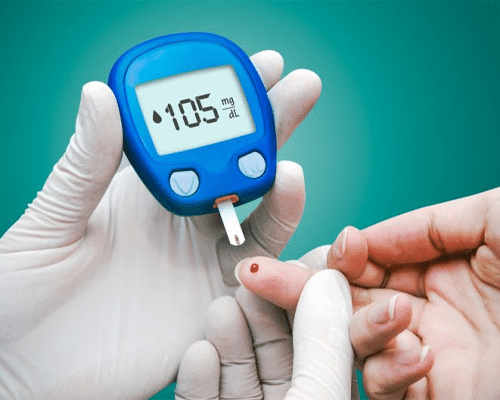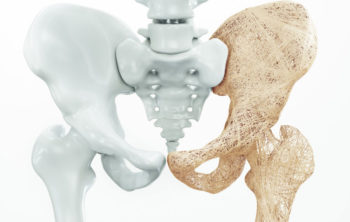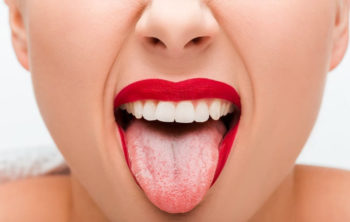Contents
Hypoglycemia (Low Blood Glucose): Symptoms, Causes and Treatment
1. What is Hypoglycemia?
Hypoglycemia is also known as insulin shock or diabetic shock. It is a combination of three words: Hypo that stands for less, Glyco that means glucose or sugar, and last word emia, a suffix, that stands for anything related with blood. So it is clear, hypoglycemia is less-sugar-blood.
Thus Hypoglycemia is a medical condition where amount of glucose is severely low in blood. It itself is not a disease, but a symptom of underlying disease. Generally this condition found in diabetes. It is a medical emergency where blood glucose level reduces more than 70 milligrams per decilitre (less than 70mg/dl).
2. Hypoglycemia Symptoms:
Symptoms of hypoglycemia can be divided in three types. Mild, moderate and severe.
2.1. Mild to moderate Hypoglycemia symptoms:
- Irregular heart beat and palpitation
- Muscle cramps
- Shaking hands
- Numbness of fingers
- Sweating and excessive sweating
- Anxiety
- Tingling sensation
- Dizziness
- Feeling cranky or acting aggressive
- Feeling nervous
- Headache
- Trembling or Shaking
- Sweating
- Tiredness or weakness
- Trouble sleeping
- Uncontrollable cravings
- A craving for sweets
- Cold hands and feet
- Forgetfulness
- Sudden hunger
- Faintness
- Depression
- Family history of low blood sugar or diabetes
- Low libido (sex drive)
- Waking up tired and exhausted
- PMS or premenstrual syndrome
2.3. Severe Hypoglycemia symptoms:
In this symptoms do look like toxicity. They are as follows:
- Mental confusion, unable to speak, irregular and uncontrolled movement of hand.
- Inability to walk (Walk to like drunk)
- Blurred vision
- Patient may become unconscious
- Temporary loss of consciousness
- Hypoglycemia shock – It is a medical emergency with severe hypoglycaemia; in this condition patient’s heart and kidney both lose their functions due to very less amount of glucose. Patient becomes restless with episode of unconscious. Hypoglycemia shock if not treated can progress toward coma and death.
- Sleep hypoglycemia is also common in diabetic person. Cry during sleep, severe nightmare, and wet clothes are three important symptoms.
3. Hypoglycemia causes:
Most of time low blood sugar level is linked with diabetes; rarely could it be symptom of other diseases.
3.1. Mild Hypoglycemia:
It is not a serious condition. It can occur to non-diabetic person due to:
- Hunger strike, excessive fasting and severe exercise
- Medication – Chloroquine used in treatment of malaria induce low level of sugar in blood.
- Sweating due to hot environment or fever
3.2. Other degree Hypoglycemia causes:
- Less amount of carbohydrate: During metabolism all types of carbohydrate and starch breaks down into sugar or glucose. This glucose is absorbed by blood and travels through blood to every cell of body. Glucose is the key source of energy for the body. Diabetic person are advised not to eat too much of carbohydrate but even if diabetic person skips necessary carbohydrates, than blood glucose level falls down drastically.
- Too much of medication: Diabetic medication, either directly reduce blood glucose or induce insulin, in both case excess amount of medication reduce blood glucose.
- Skipping meal: Skipping meal can cause low sugar in blood. Sleep hypoglycemia also happens because of not taking dinner and eating too early in evening.
- Exercise: Too much of exercise that is beyond normal routine can causes low sugar level in blood for next whole day.
Read more: Integrative Health
4. Diagnosing Hypoglycemia:
Hypoglycemia is a condition when sugar in your blood drops below the normal level. But in a natural way your body will keep producing sugar to avoid falling from the normal level if you haven’t eaten for a while. Sugar levels drop during fasting and the natural process of the body takes over usually to restore normalcy of the sugar level in the blood.
But this natural mechanism doesn’t always work perfectly as people have been diagnosed with mild hypoglycemia when hungry, while others with chronic problems and the shakes occur regularly whenever they are very hungry. They are the ones who need to manage their diet and resort to medications. Hypoglycemia episodes may be reactive, occurring just after a meal or fasting when it occurs after a prolonged period of fasting.
Hypos, or chronic bouts of hypoglycemia are sudden reactions common among diabetes patients when there is an imbalance between the insulin pills, the level of food and the level if activity or exercise. Common diagnoses for hypoglycemia are a blood glucose test and the body’s successful response to sugar.
For a normal patient a routine blood analysis is required, but incase of confusion a repeat analysis of the tests should be done. If patients are found with symptoms of hypoglycemia, a 5 hour glucose tolerance test or in some cases, a 72 hour fast during whith repeated blood sugar tests should be taken after hospitalization.
If the results come negative, the patients are more likely to have functional hypoglycemia. Depending on the patient’s condition, further tests like plasma, cortizol, plasma growth hormone assay and plasma proinsulin could be carried out. Along with these tests, CT scan of the abdomen, C-peptide and a tolbutamide tolerance test could also be done. Endocrinology result can also be obtained as part of the diagnostic test.
Results of these tests may vary from patients, if they are on oral hypoglycemia drugs, insulin, or taking high doses. If there is a history of obesity or sudden loss of consciousness, insulinoma could most likely be the cause. If the plasma cortizol is low, chances are they may have Addison’s disease for which test have to be done.
Low plasma growth hormone suggests Simmond’s disease. Abnormal d-xylose test results could point to diseases from cirrhosis to hypothyroidism.
5. Hypoglycemia treatment:
Hypoglycemia is a state where the blood glucose level falls below normal and can happen to anyone at any time. As soon as it happens, dizziness, irritability, cramps in the legs and sometime momentary memory loses occur and the person can take a snack or drink containing sugar to raise the blood glucose level. Instant symptom improvement is bound to be noticed if they are taken as soon as the conditions begin sending warning signals.
One has to learn to spot these minute changes in ones body condition early on to prevent aggravation. Infants with hypoglycemia are administered glucose through a vein until it reaches the normal level. Adults with severe conditions are given glucose injections or the hormone glucagons. But hypoglycemia treatment has to be fast and prompt to avoid serious complications from setting in as the low glucose delivery to the brain can be fatal.
Best way to treat mild to moderate hypoglycemia is to eat some glucose. Pure glucose like sugar is best option. If you are feeling symptoms of low blood sugar level then do not wait just take ½ table spoon of sugar. Fruits and soda drink also have glucose so they are also other option. If symptoms are still progressive you should consult with doctor as intravenous dextrose 5% 10% or 20% may be needed.
5.1. Prevention:
If there is more than 3 episode of low blood sugar level happens in 48 hours, than you should definitely consult with dietitian for hypoglycemic diet.
Keeping track of what your doctor has suggested diligently can prevent further hypoglycemia and damage as medication runs parallel to a constant flow of a healthy diet that also includes limited but even amounts of sugar throughout the day. Small meals are usually healthy rather than few large meals. And meals should contain abundant complex carbohydrates, fiber and fat while simple sugars like alcohol and fruit juice should be avoided to keep hypoglycemia at bay.
5.2. What is Hypoglycemic diet:
Hypoglycemic diet is nothing but dividing entire meal into 8 smaller meals. In every meal you should have some amount of glucose and carbohydrate to maintain static blood sugar level for whole day. Add some fruits in diet. Fruits are best snack for prevention of hypoglycemia, because even sweetest fruits like banana and mangoes do not cause sudden rise in blood sugar but provide continuous small sugar for next 4-6 hour.
Whatever the medicines and the vitamins you take, unless you change and control your dietary habits along with it, it is difficult to treat hypoglycemia. It is a condition when the blood glucose levels fall below the required normal level. You would be confused as there are different suggestions for people with a hypoglycemia condition as suggested by some medical experts to take a protein rich and low in carbohydrates diet with others asking you to do just the opposite.
Everyone is convinced about their prescriptions as they might have experienced improvements eating whatever they are suggesting. It is common knowledge that caffeine, alcohol and tobacco are a few of the poisonous substances for hypoglycemia affected people. Still all of us different and we have different constitutions and metabolism patterns.
We are all unique in our bio-chemical compositions and so diets, even restrictive ones for problems like low sugar levels, also vary. There is a list of dos and don’ts that are universal as they apply to all bio-chemical conditions and cannot be ignored by any. It will help arrest the problem and you can soon bounce back as a new you.
You can begin by eliminating common foods, drinks and chemicals like sugar, white flour, alcohol, caffeine and tobacco and keep a chart of your daily diet for a full week. Not only what you are eating, but also keep count of the content of carbohydrate, protein and sugar or salt that is going into your diet.
With some guidance and advice from your medical service provider or your doctor, you can settle on how much coffee you can drink in a day or how much you have to reduce from your present intake level. Once you have replaced the foods that have a negative impact on your system, try out the more healthy ones like nutrient rich food and simple snack food that are more natural without preservatives.
Avoid quick take away and junk food as much as possible. Whole grains, de-skinned poultry, lean meats and fruits are usually recommended. The common problem with some is that they are latent omnivores and eat a lot during one meal. Instead of filling up too much with a couple of large meals, eat small, six or seven meals daily to avoid over eating.
5.3. Vitamins for Hypoglycemia:
Hypoglycemia is a medical term for the below normal sugar level that makes you feel shaky, giddy and tired. While chromium is the most important vitamin for hypoglycemia, magnesium, both B and C Vitamins are also important. But for hypoglycemia, these vitamins are not the only ones required, but they keep up energy levels known to lack in patients with the problem, and helps keep blood sugar level low, increase metabolism and reduce the craving for sweet foods as well.
1) Chromium:
Chromium is one of the essential vitamins for hypoglycemia as t helps to maintain blood sugar at normal levels. Hypoglycemia occurs when the sugar falls below the normal level and chromium also helps to keep the energy levels at the optimum in between meals and reduce craving for sweets. Sweet tooth is a common cause for sugar related problems in people. Unless sweet foods are cut down and the craving arrested, hypoglycemia cannot be treated.
2) B Vitamins:
B Vitamins treat hypoglycemia but the most important are B6 and B3, which is also known as Niacin. You can maintain your blood sugar level without sacrificing your metabolism with B6 Vitamin. Usually patients stricken with the disease risk brain damage as not enough glucose goes to the brain.B6 is known to reduce the risk of brain damage and B3 or Niacin helps to accelerate metabolism in your body which ultimate helps to digest insulin.
3) Magnesium:
Metabolism, maintaining high energy levels in between food, keeping blood sugar level low at a normal level and reducing the craving for sweet foods is the main reasons why vitamins are taken to combat hypoglycemia. Magnesium helps to metabolize sugar by activating B vitamins and keeping blood sugar level low while at the same time ensuring that energy levels are maintained. Vitamin C is another vital vitamin to reduce the chances of a hypoglycemia attack as it helps to neutralize insulin.
All vitamins together complement each other in combating hypoglycemia and should be treated as important. The disease comes freighted with multiple problems that require multiple vitamin intakes to solve them. It is better to talk to your health care provide before taking other vitamins known also for regulating glucose levels like zinc, Pyridoxine and B complex, and vitamin E. But with all vitamins taken together, diet control is the most important parallel treatment method for hypoglycemia that you can do.
Exercise should be accompanied with food taken in measured quantities many times, at regular intervals and a balance should be maintained as directed by the medical service provider. In case you are detected with an insulin creating tumor, surgery is the only way to remove it as it is the only form of treatment available in such conditions if the hypoglycemia gets out of control.
You should not ignore the usual symptoms as hypoglycemia, if left untreated can be fatal and in infants, seizures and permanent nervous system damages can occur. If you know the setting in of the condition early on, get in touch with your health care provider as soon as possible to avoid delay in treatment and changes in dietary habits and timings. If it is in a little advanced stage like there is no improvement even after you have taken snacks and drinks containing sugar, call the local emergency number like 911.
Early detection and treatment of hypoglycemia can arrest the acceleration of the problem.
6. Neonatal Hypoglycemia:
Glucose being the major source of energy, it cannot stay at lower than normal levels and allow the body to function normally. Although all organs use glucose, the human brain is known to make use of it extensively. Hypoglycemia is a common metabolic problem in neonates. For children the bar for blood glucose is 40 mg/dl and anything below that is a symptom for hypoglycemia. For newborns, the 24 hours of their life with less than 30 mg/dl glucose level and less than 45 mg/dl afterwards is a sure sign of them being diagnosed with hypoglycemia.
Prolonged conditions like this if left untreated can cause problems in the normal development of the brain and its functioning as well as permanent brain damage in some cases. Most common symptoms of neonatal hypoglycemia noticed are altered levels of consciousness, vomiting, lethargy and seizure as well as unresponsiveness in slightly older infants. Care should also be taken to treat and spot such symptoms early before much damage is done by hypoglycemia if either parent is affected with the condition.
Infants and children with hypoglycemia if left untreated or if the symptoms are not spotted in time, could have permanent neurological problems and impaired development. For infants, hyper-insulinism or a persistent hypoglycemia for the first three months is known to be the common cause for their problem and made worse if the mother has diabetes. Leaving insulin therapy, hypoglycemia in childhood is occurred during their fasting. Medical service provides are equipped to treat neonatal hypoglycemia early before the damage is done.
As the human brain requires more of glucose than any other organ, and with limited storage function, a steady and adequate supply is a necessary physiological process. In infants it is vital because they are not expected to spot the symptoms that the level of glucose is lower than normal. A high brain to bodyweight ratio in newborns requires more glucose than the amount being produced.
They require 90% of the glucose produced for delivery to their brains. In this scenario they are different from adults. As the newborn’s counter regulatory system remains underdeveloped, other substitute molecules like lactate and ketone bodies cannot reach the brain. Infants are in a critical stage and highly susceptible as the counter regulatory system is not up and running and hypoglycemia becomes a big danger.
7. What is reactive Hypoglycemia?
Reactive hypoglycemia is the first sign of an individual having arrived at a dietary point of no return. It is a medical term for frequent episodes of hypoglycemia every 2-4 hours after a high carbohydrate meal. Long after digestion and disposal of glucose derived from the carbohydrate meal from which the insulin keeps on getting released.
It is difficult to fix the condition which can be termed as reactive hypoglycemia controversies still abound. Many healthy persons not known to have any form of hypoglycemia have shown similar glucose tolerance test results that are symptomatic of reactive hypoglycemia.
But common ground has been found in pegging the conditions for reactive hypoglycemia. Low glucose levels are corrected by raising the level, a method known as the Whipple criteria, and called idiopathic postprandial syndrome when abnormally low levels of glucose during the pattern of symptoms cannot be documented.
Sensitivity to the rise and fall in glucose levels varies from one individual to another but the common symptoms of reactionary hypoglycemia are fatigue, dizziness, lightheadedness and abnormal sweating… Headaches, tremors, palpitation, depression, irritability and flushing are common when the condition is said to have occurred.
Nausea, vomiting, and responding to rapidly flashing bright lights like in epilepsy are usually seen in this type of condition. Along with these signs, an increase in appetite and an unusually high craving for sweets are the very common changes also noticed.
Although reactive hypoglycemia is known to be a Type II diabetes, a carefully planned diet with less sweet intake are known to be the only way the onset of real type diabetes can be warded off. For people with a reactionary hypoglycemia condition, proper diet management has so far been found to be the only practical solution.
Most noticeable hypoglycemia symptoms surface when one has to wait to long on between meals. Otherwise, under normal circumstances and regular timely meals it cannot be detected. People become cranky, shaky and lethargic during the intervening period. As soon as they eat and are full, the situation gets back to normal.
This type of reactionary condition is known as fasting hypoglycemia. Breathlessness, panic attacks, inability to concentrate, memory problems, inner trembling and pounding of the heart couple of hours after a meal, irregular heartbeat, weight gains and nightmares are common and any 3 of these would put the person at risk of reactionary hypoglycemia.
8. Disclaimer:
Above article is only for knowledge purpose. Please contact your healthcare provider before using any of above medicine or method. For any query or personal consultation according to your health condition, please contact your doctor.





